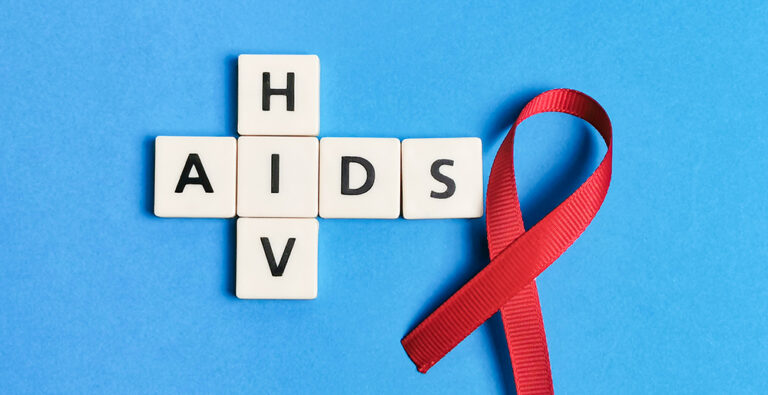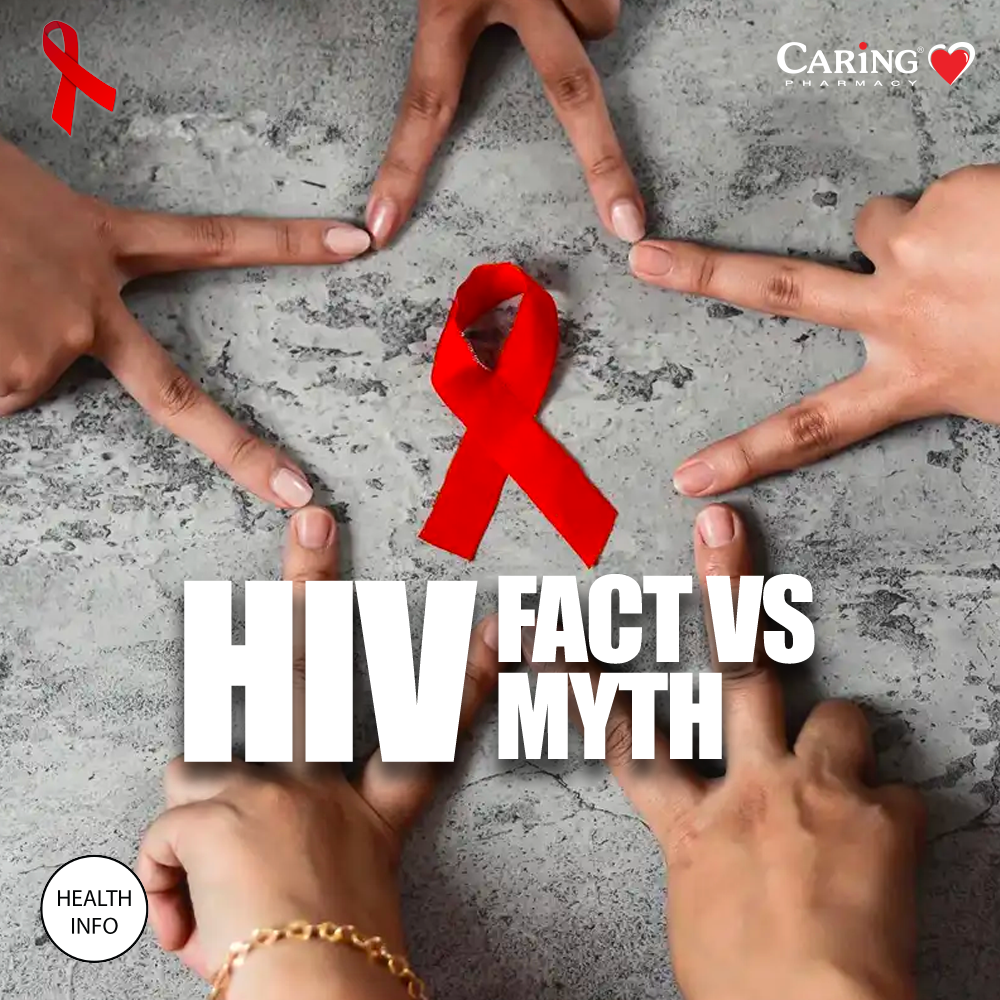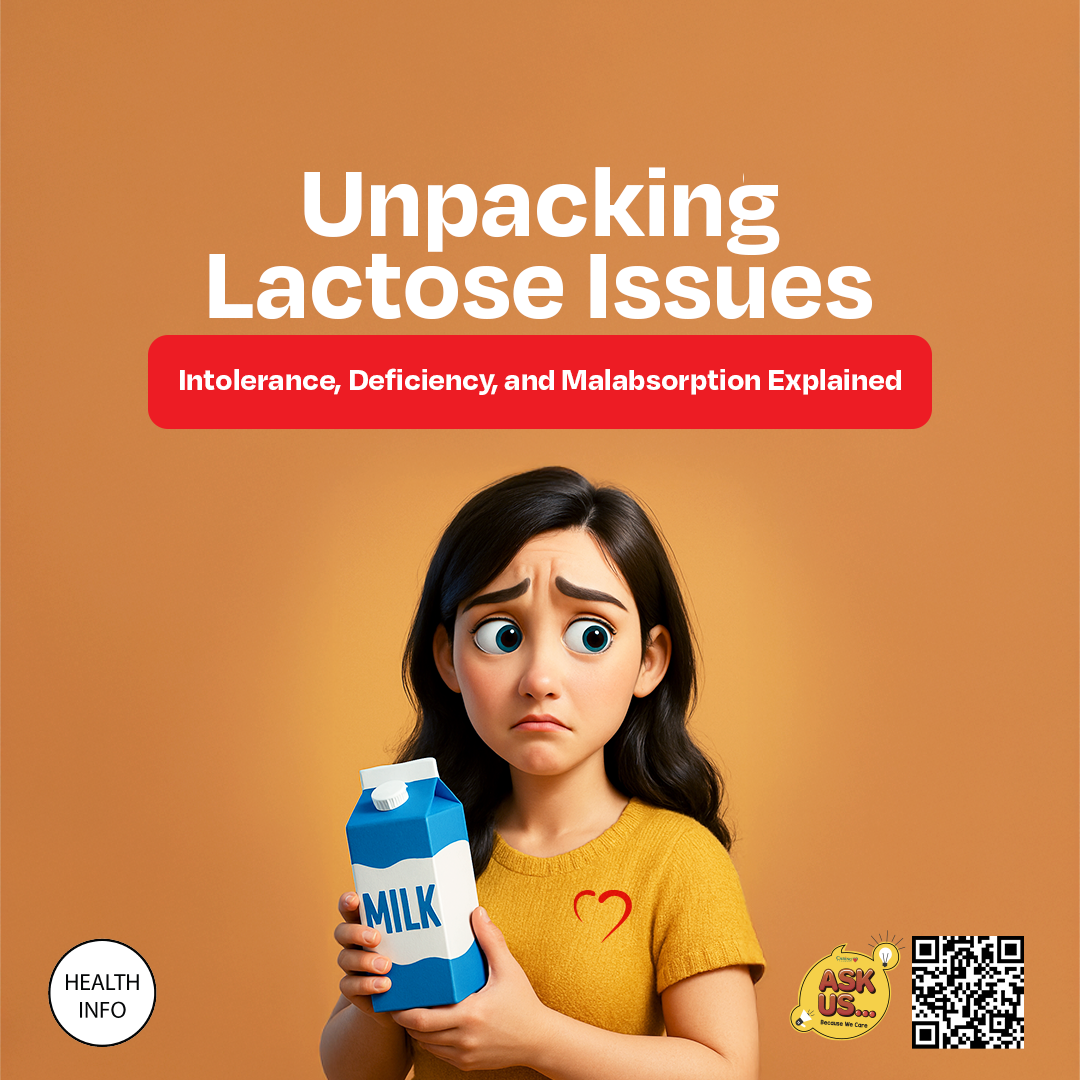
We always hear people talking about HIV (Human Immunodeficiency Virus) and there is a lot of information about HIV on social media, but is it all true about HIV? Let us break the myths of HIV and learn more about HIV today!
Myth #1: I am HIV negative since I do not present any signs or symptoms.
Signs and symptoms of HIV include flu-like symptoms such as fever, sore throat, mouth ulcers, fatigue, and swollen lymph nodes1. People who are infected by HIV might present with these symptoms after 2-6 weeks of exposure, but some HIV carriers do not show any signs or symptoms. You can only know if you get tested.
Myth #2: Only homosexual couples or people who do not have a loyal and honest partner will get HIV.
HIV is transmitted through contaminated blood transfusion, unprotected sexual intercourse, sharing injecting equipment, and from HIV-positive mothers to babies. It is false to assume only homosexual people are exposed to these risk factors. We could prevent HIV infection by using condoms during every sexual intercourse and avoiding sharing any needles2
Myth #3: I could be infected by HIV patients if I share eating utensils with them or have close contact such as hugging and kissing.
HIV does not transmit through casual contact such as food, saliva, faeces, clothes or insect bites2. You could give a big hug and share household items if you are staying with a HIV patient.
Myth #4: HIV is the same as AIDS.
HIV is also known as human immunodeficiency virus, it will attack our body’s immune system. If left untreated, it eventually leads to AIDS (acquired immunodeficiency syndrome) which is the most severe stage of HIV infection1
Myth #5: I would definitely die if infected by HIV.
There is no treatment that can cure this disease2. However, there are HIV medicines that help to stop the virus from replicating in our bodies thereby controlling the disease and improving our quality of life.
Take home message<
Do get tested if you are in a high risk population or present any signs and symptoms. Start prevention today.
References:
- About HIV. Centers for Disease Control and Prevention (CDC). (Web accessed November 2023). Web link: https://www.cdc.gov/hiv/basics/whatishiv.html
- HIV and AIDS. World Health Organization (WHO). (Web accessed November 2023). Web link: https://www.who.int/news-room/fact-sheets/detail/hiv-aids#:~:text=HIV%20is%20spread%20from%20the,with%20antiretroviral%20therapy%20(ART).
Latest Health Info
Managing Stress in Everyday Life
In today’s fast-paced world, effectively managing stress is crucial for maintaining both mental and physical health. Chronic stress can negatively ...
Understanding Fatigue: Why You’re Always Tired and What To Do About It
Constantly feeling drained? You’re not alone. Fatigue, a deep, ongoing sense of tiredness is one of the most common health ...
Unpacking Lactose Issues: Intolerance, Deficiency, and Malabsorption Explained
Ever wonder why some people, or even yourself, are suffering from lactose intolerance? Lactose, the primary sugar in milk and ...




